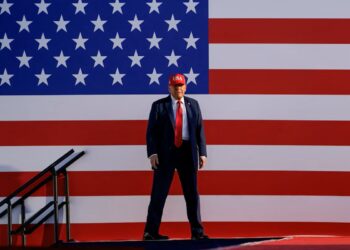Geneva, Switzerland – No fewer than 2,500 leaders from business, government, international organisations, civil society, academia, media and the arts, are expected at the World Economic Forum (WEF) Annual Meeting 2018, billed for 23-26 January in Davos-Klosters, Switzerland.
Convened under the theme, “Strengthening Cooperation in a Fractured World,” the 48th edition of (WEF) is aimed to set an agenda that drives greater multistakeholder collaboration to address political, economic and societal challenges of our times.
The global context today has changed dramatically: geostrategic fractures have re-emerged on multiple fronts with wide-ranging political, economic and social consequences. With over 400 sessions, the programme is an unparalleled effort to engage leaders in a new shared narrative to improve the state of the world, says a statement by Fon Mathuros, Head of Media, Public Engagement, World Economic Forum.
“Our collective inability to secure inclusive growth and preserve our scarce resources puts multiple global systems at risk simultaneously. Our first response must be to develop new models for cooperation that are not based on narrow interests but on the destiny of humanity as a whole,” said Klaus Schwab, Founder and Executive Chairman, World Economic Forum.
The statement added that “With the World Economic Forum communities and organisational capacity dedicated to driving positive change through 14 distinct System Initiatives, participants at the meeting will contribute to multiple agendas such as:
– The Global Agenda: Supporting efforts to improve global governance mechanisms and advance major multilateral processes; for example, the UN’s Sustainable Development Goals
– The Geopolitical Agenda: Convening leaders and experts to prepare for and respond to a rapidly changing geopolitical landscape
– The Economic Agenda: Supporting multistakeholder efforts to deliver sustainable and inclusive economic development in the face of lower growth rates, declining productivity and skills gaps
– The Regional Agenda: Examining in depth the social and economic transformations occurring in all regions
– The Industry and Business Agenda: Contributing to the shaping of new industry ecosystems and helping industry and government leaders prepare for the Fourth Industrial Revolution.
– The Future Agenda: Sharing the ideas, innovations and discoveries that will have the greatest impact in reshaping global systems.”








